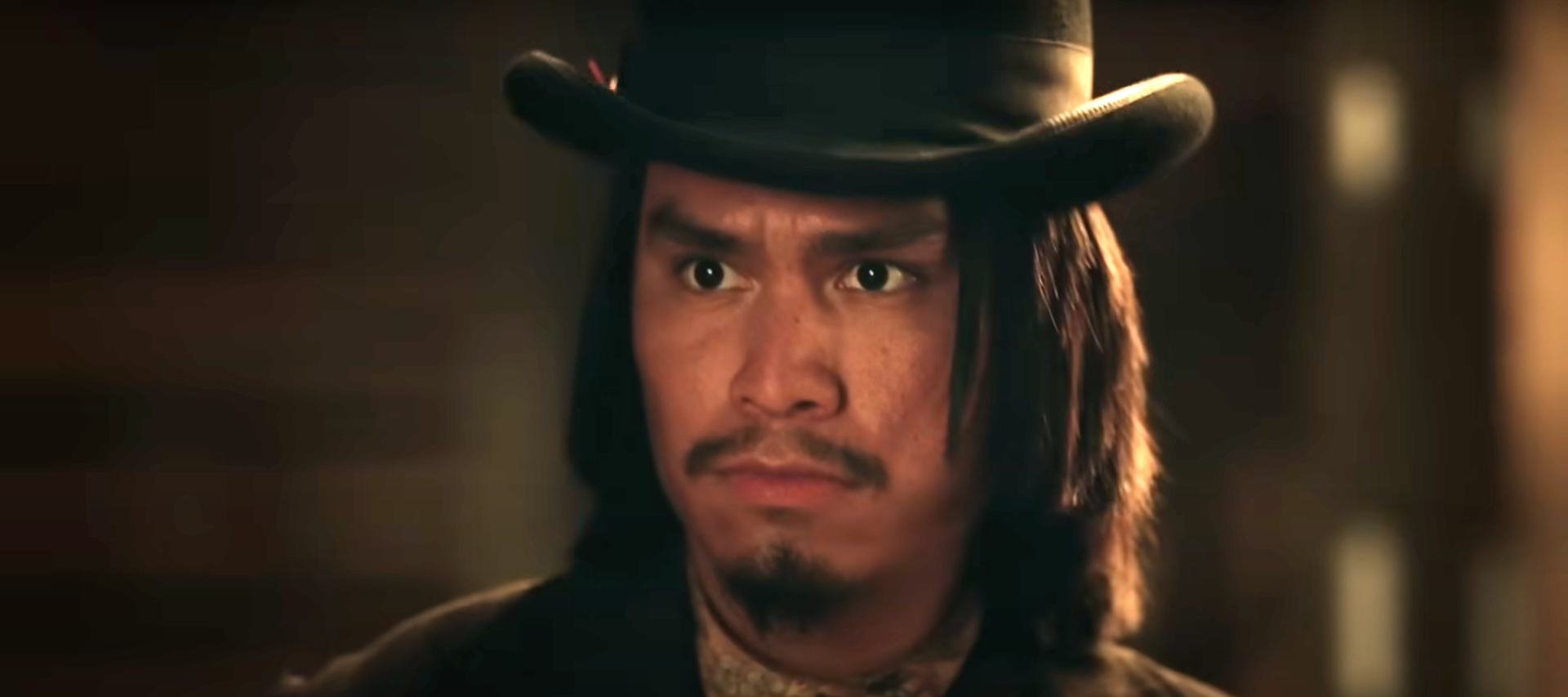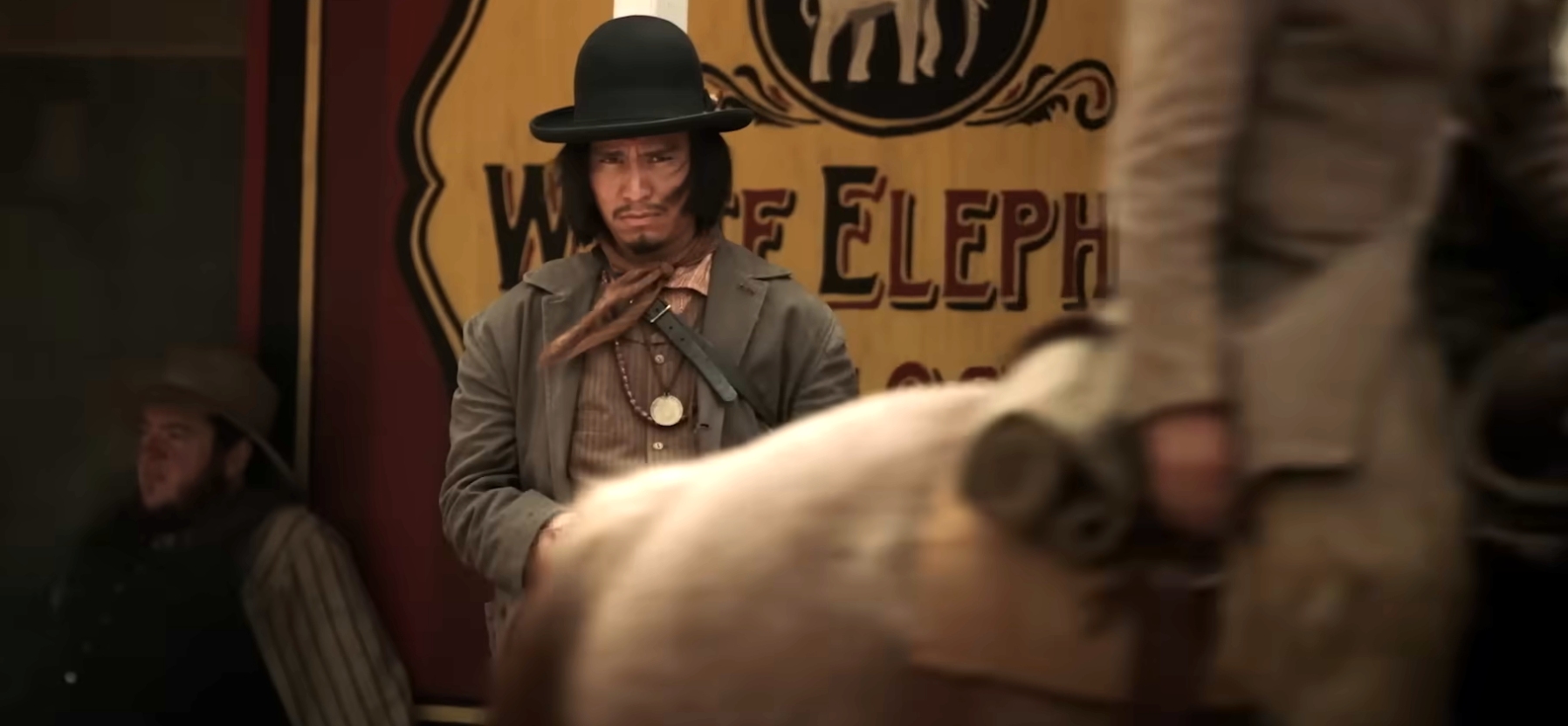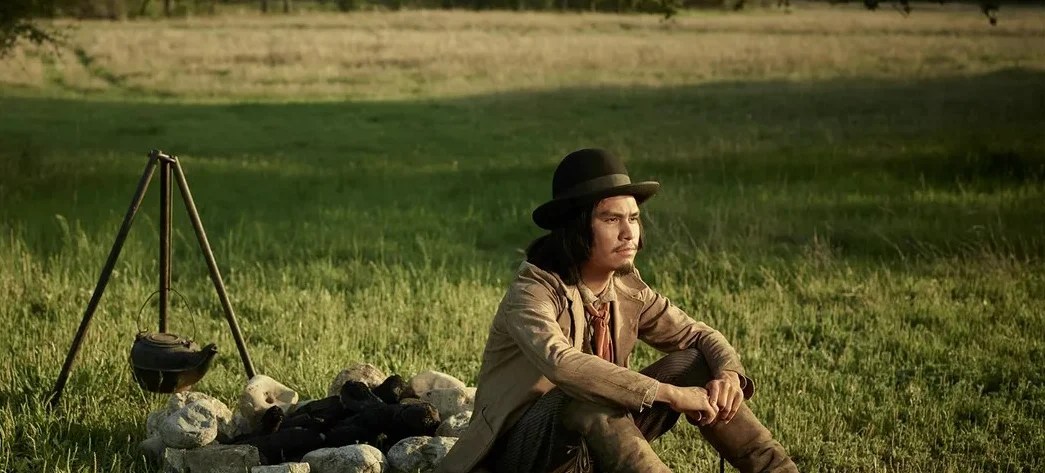Deputy Marshal Bass Reeves sets out to capture Billy Crow, a Cherokee outlaw who robes a German group, in the third episode of Paramount+’s Western series ‘Lawmen: Bass Reeves.’ Although Billy is part of a highly infamous robbery gang named the Underwood gang, it doesn’t take long for Bass to find out that he is a good but “confused” kid who deserves a chance to correct himself. Even though Billy is not based on a particular person, the character is connected to real life, which can be unraveled by digging into the history of Bass’ expeditions as a lawman!
The Reality and Fiction Behind Billy Crow
During his tenure as a deputy marshal, Bass Reeves was mainly posted in Indian Territories to safeguard Native Americans. Due to his knowledge of the regions and Native American languages and cultures, he must have been the best fit as well. Since his operations prominently revolved around Indian lands, he was often assisted by Native Americans, as per Art T. Burton’s ‘Black Gun, Silver Star: The Life and Legend of Frontier Marshal Bass Reeves.’ There aren’t any records available that offer detailed information regarding these people, which must have made it impossible for creator Chad Feehan to conceive a character outrightly based on one of them.

Billy Crow can be seen as a representative of these Native Americans who helped Bass Reeves catch outlaws and build his remarkable legacy. In the series, Billy quickly forms a connection with Bass by making it clear that he wants to part ways with the world of crime. Bass acknowledges Billy’s honesty and they become a duo fighting crime on the frontier. Billy’s arc and companionship with Bass pay homage to the several Native Americans who should have been an integral part of the “legend of Bass Reeves.”
Through Billy’s storyline, Feehan establishes that it is possible to walk away from the pathway of crime. Billy is ambitious and wants to live his life in a place and time where his peers throw away their lives easily to bullets. He embodies the spirit of life that drove the lives of several real-life individuals who survived the harshness of the Wild West. “He [Billy] is a dreamer who ends up in the wrong place at the wrong time and has to face the consequences of it. But Bass sees the good in him,” Christina Alexandra Voros, one of the directors of the show, told Vanity Fair.
Billy and Tonto
Over the years, several historians have claimed that Bass is the inspiration behind the legendary character, the Lone Ranger. Burton, in ‘Black Gun, Silver Star,’ compared the Lone Ranger’s companion Tonto, a Native American, with the Indians who helped Bass during his time as a deputy marshal. Since Billy can be approached as a representative of the latter group, the viewers can’t be blamed for wondering whether he is a counterpart of Tonto. As far as Chad Feehan is concerned, that’s not the case.

“I do want to say that Billy Crow becoming Bass’s posse man was not in any way to pay any sort of homage to Tonto, but rather what we tried to do so desperately in this series, which was to show the universality of the human condition and show fully actualized people who are from all different races and creeds, but who we can identify with as human beings,” Feehan told TheWrap. “And Billy is representative of that. Billy is a great character, in my opinion, that has a great arc. He’s a dreamer and he goes on to do some great things in the series,” he added.
Still, there are similarities between Tonto and Billy. In the radio show ‘The Lone Ranger,’ the former Texas lawman saves the Native American’s life by administering first aid after an explosion. Similarly, Bass saves Billy’s life from the Underwood gang when they pursue the duo to make sure that the Cherokee outlaw wouldn’t “name names.”
Read More: Is Lawmen Bass Reeves a Part of the Yellowstone Universe?


You must be logged in to post a comment.